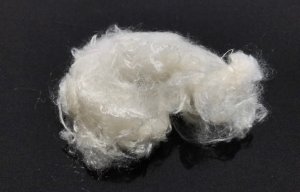
Nanollose develops sustainable fibre for apparel industry
New report highlights cellulosic fibre developments which will help brands and retailers provide environmentally sustainable textiles and apparel.

25th January 2021
Innovation in Textiles
|
United Kingdom
Several innovative start-up companies have recently made huge progress in developing cellulosic fibres derived from textile and clothing waste and some of these fibres are poised for commercialisation in 2021, according to a new 31-page report entitled Innovations in cellulosic fibres derived from recycled textile and clothing waste, from the global business information company Textiles Intelligence.
Brands and retailers are under immense pressure to provide textile and apparel products which are environmentally sustainable. At the same time, there is an urgent need to reduce the amount of waste generated by the fashion industry, which is estimated at 92 million tons a year, the report says.
Making cellulosic fibres from materials derived from textile and clothing waste is one way of addressing these two key challenges, not least because such fibres are biodegradable and are therefore considered to be more environmentally sustainable than synthetic fibres and cellulosic fibres made using conventional processes, the report expands.
Furthermore, it says, cellulosic fibres derived from textile and clothing waste can themselves be used as feedstocks in recycling processes when the textiles and garments which incorporate them have reached the ends of their useful lives, thereby contributing towards the development of a circular economy.
Some start-up companies--such as Evrnu and Renewcell--have focused on the development of pulp derived from textile waste. This pulp can, in turn, be used as an alternative to wood pulp in the manufacture of cellulosic fibres such as lyocell and viscose. Meanwhile, Infinited Fiber Company has developed its own “unique” cellulosic fibre which is made from cellulose derived from textile waste, and Spinnova is scaling up the manufacture of its specialist cellulosic filament fibre which is produced from pulp without the use of a dissolving process. In addition, Spinnova is conducting research into the use of textile waste and bio-based waste as feedstocks.
Some of these companies are poised to commercialise their products in 2021, representing an exciting opportunity for textile and apparel companies seeking to improve the environmental sustainability of their products.
Indeed, cellulosic fibres derived from textile and clothing waste are attracting high commercial interest, and a number of the apparel industry’s key players, including H&M Group, Kering and Patagonia, have invested in start-ups innovating in this field. Other companies, such as Adidas, Bestseller, Levi Strauss & Co, PVH and Wrangler, have established partnership agreements through which they are exploring the use of such fibres in the manufacture of innovative new products.
Looking to the future, demand for cellulosic fibres, and lyocell in particular, is set for healthy growth, and so there is much opportunity for providers of cellulosic fibres derived from textile and clothing waste, the report continues. Collaboration is key to bringing such products to market, the report explains, and, to support progress in this area, some major industry projects have been established, including the Full Circle Textiles Project: Scaling Innovations in Cellulosic Recycling, and the New Cotton Project.
However, it should be noted, the report points out, that start-ups entering the market are competing with some industry heavyweights, including Asahi Kasei, Birla Cellulose, Lenzing, Sateri, and Tangshan Sanyou. Consequently, they will need to keep abreast of the latest developments, notably those relating to traceability. Consumers are demanding increasingly that materials incorporated in textile and apparel products are capable of being traced along the entire supply chain. This is considered to be particularly important in relation to fibres derived from recycled materials, and Lenzing has made major strides in this area through its use of innovative blockchain technology.
The report is available for purchase via this link - Innovations in cellulosic fibres derived from recycled textile and clothing waste.

Business intelligence for the fibre, textiles and apparel industries: technologies, innovations, markets, investments, trade policy, sourcing, strategy...
Find out more